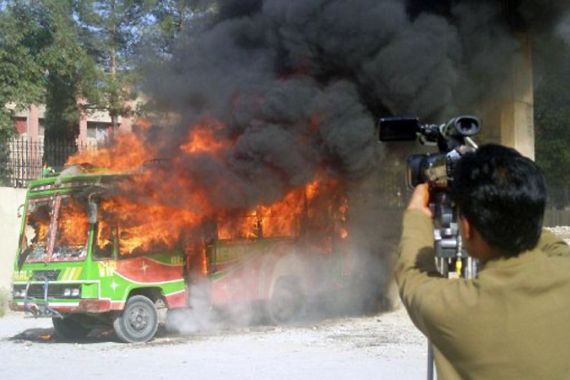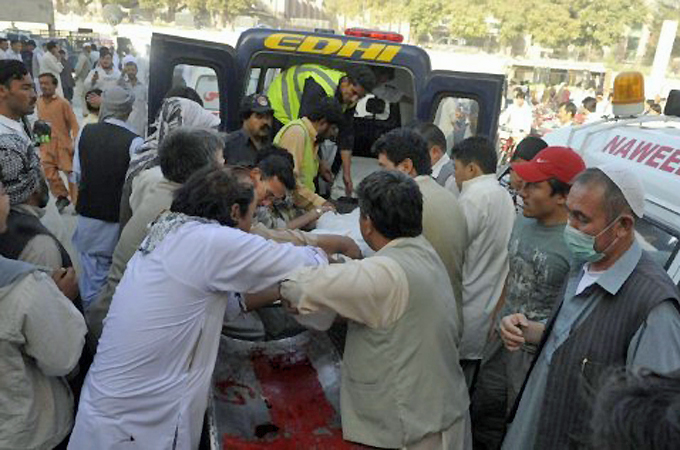Deaths in Pakistan bus attack
Killing of at least 13 Shia Muslims in southwestern city of Quetta prompts protests by victims’ families.

 |
| Tuesday’s attack in Quetta was the second suspected sectarian attack in Pakistan in two weeks [AFP] |
Armed men near the southwestern Pakistani city of Quetta have killed at least 13 Shia Muslims headed to a vegetable market in what police believe to be a sectarian attack.
Witnesses say the attackers approached a bus headed towards Dalbandin 45 minutes into their journey, in the province of Baluchistan, of which Quetta is the capital.
According to Hamid Shakeel, a senior police officer, the passengers were forced to stand in a line as four or five gunmen opened fire, killing 13 and wounding five.
Families of the victims, many of whom were shopkeepers and merchants, set fire to a bus used to transport the injured and dead in a show of protest, according to the private Pakistani television channel Geo TV.
Another group of protesters reportedly blocked access to the main highway leading to Quetta.
Al Jazeera’s Kamal Hyder said that the majority of those killed were from the ethnic Hazara community, who are largely from the Shia sect.
This was the second suspected attack targeting Shia Muslims in the majority Sunni nation in the last two weeks, highlighting the government’s inability to protect minorities.
Targeted attacks
At 20 per cent of the nation’s population, Shia Muslims are the largest of Pakistan’s minority groups.
Pakistani Shias have increasingly been victims of sectarian attacks by Sunni Muslim groups loyal to al-Qaeda and the Taliban.
This summer has been especially bloody in Baluchistan province, with at least four major attacks since May.
Sunni fighters carried out a similar attack on Shiite pilgrims traveling through Baluchistan via bus about two weeks ago, killing 26 people.
Lashkar-e-Jhangvi, one of the country’s most ruthless Sunni groups, claimed responsibility for that attack.
One of its alleged leaders, Malik Ishaq, was released from prison on bail in July after being held for 14 years on charges, never proven, of killing Shiites.
Ishaq was re-arrested about a week ago after making inflammatory speeches against Shiites in the country.
It’s not clear whether Ishaq’s speeches have been connected to the recent wave of sectarian attacks.